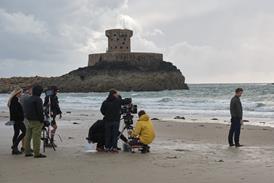In October 2006, technology analyst Ovum released research into the IPTV market in which it projected that the number of IPTV subscribers worldwide would grow sixfold in around three years, from 5 million today to 29.5 million in 2010. While this remains a drop in the ocean compared with the number of viewers on other platforms, the expected growth curve is a healthy one.
The deep-seated presumption is that much of IPTV's growth will be driven by niche channels. There are several compelling reasons why. First, cost and/or lack of capacity on satellite and DTT make it hard for niche channels to gain a foothold through these distribution channels.
Second, niche stations' potential audience - often enthusiasts for a subject or a grouping of expatriates keen to immerse themselves in their national culture - have the desire to seek out content. And given that the internet is easily searchable, it offers a good environment for tracking down non-mainstream material.
This has led to a mini gold rush, with decidedly mixed fortunes. 'Pretty much everything is available in the web environment,' says Decipher director of consultancy Rupert Britton. 'Indeed the number of broadband video start-ups is on a par with the number of dotcom start-ups we saw in the late 1990s. Most of these start-ups are banking on the 'long tail' [see panel] being important, in that they hope to carve out small but lucrative markets out of the niche. Yet, as with the dotcom era, marketing will be key as they venture to be seen by their target audiences, and there will be a few winners and many losers.'
Search technology, elaborates Britton, is vital for niche content to succeed in finding its target audience. Decipher research has shown that the main usage of the web is still as a research tool, so factual content that is properly tagged has a greater chance of being seen.
Britton argues that Land Rover's Go Beyond TV service, for example, despite having great content - including programmes acquired from National Geographic and Discovery - misses a large potential audience because it is not prominently listed in search engines when people search for topics covered by its content.
Aggregator, which last July raised £9m in venture capital funding, is one of the leading players in sourcing, packaging and delivering television programming over broadband platforms. In October, it launched MoëTV, a Russian language portal supplying a collection of on-demand entertainment, drama, current affairs, films, documentaries, music and children's programming to the estimated 500,000 Russians living in the UK.
'We are looking for content that has been squeezed out of the broadcast window but has a strong group of people interested in it,' says Aggregator co-founder and director of programming Chris Griffin. 'We are niche, we operate more like a magazine than a TV channel.'
So what is MoëTV's revenue model? There is no mandatory subscription charge: consumers can choose to obtain content on a per-view basis of 99p to £2.99 a programme or, if they prefer, view unlimited content for £15.99 a month.
Aggregator intends launching further services aimed at other 'clusters of interest' and Griffin thinks there are many sustainable niche audience opportunities. He does, however, concede that there is a 'huge divide' between people who are comfortable downloading content onto a PC and then transferring it to another device and those who are not. Shortly, Aggregator is launching a co-venture with MercuryMedia called joiningthedots.tv which will provide access to a library of documentaries and factual films from independent sources.
IPTV service provider Inuk Networks last year developed Freewire as its branded platform for the delivery of video, voice and data services to consumer customers. It has begun by targeting the student market, working with the organisation that operates the
Janet academic network, but intends to expand into a residential offering soon. Inuk has also been working with indie Boomerang on developing an extreme sports channel.
'A lot of universities have content that they film - but they also have rights to interesting things that they don't yet film such as sports, lecturers and touring bands,' says Inuk chief executive Marcus Liassides. 'We've created a platform where the cost of delivery is negligible. And niche content will be prevalent because it tends to be cheap to either acquire or produce.'
For original content, the big question is what is the key income stream? Is it subscription led - can the number of likely subscribers fund programming? Or does advertising hold the key? A model railway enthusiast's channel may be a perfect advertising ground for Hornby, but will 10,000 subscribers really persuade it to climb on board?
Maverick Television head of new media Dan Jones says: 'It is undeniable that IPTV is going to make new, on-demand viewing experiences possible and that original niche content will become far more widely available and accessible, but any major excitement from producers should be tempered slightly with the ever constant question raised by advances in new media - where is the real money for quality content going to come from?'
Tinopolis director of inter-active services Alan Morgans cites Cycling TV as a great example of a niche content channel that has 'survived' in the broadband TV market because it offers unique content to a large global community. Interactivity, such as online debate after a race, is a feature that appeals to passionate fans. It is by offering those services that the mainstream eschews that niche channels will carve out a loyal following.
The long tail
The phrase 'the long tail' was first coined by Chris Anderson in a 2004 Wired Magazine article to describe certain business and economic models such as Amazon.com or Netflix. The original analogy involved analysis of Amazon's sales, revealing that a significant proportion came from more obscure titles.
Today the term is often applied to squeezing as much value out of content as possible, by extending its appeal and longevity using IP distribution and networking potential. For example, engaging consumers to watch the content, then talk about it, rate it, share it and even add their own content.
But clearly it is not the way to turn any old archive material into digital gold.
'In the on-demand age, quality is everything,' says Cycling TV managing director Simon Brydon. 'If you have good content, the long tail is just packaging it and offering content for sale, download or streaming. But 90% of all movies available for download are never touched because they are rubbish.
'Quality is more important than ever and the myth that you can repackage everything and earn from it is just that??? a myth.'






























No comments yet